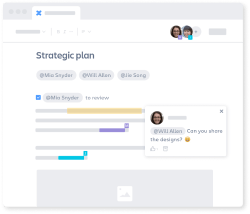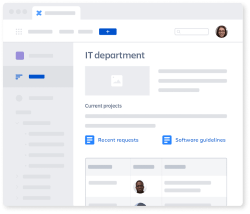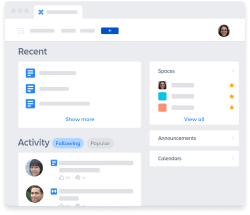In today’s fast-paced business world, staying organized and efficient is crucial for success. This is where Enterprise Resource Planning (ERP) systems like NetSuite come into play. NetSuite, a cloud-based ERP software, has gained immense popularity due to its ability to streamline operations, improve productivity, and provide real-time insights into business performance. To harness the full potential of NetSuite, an experienced NetSuite administrator is essential. In this comprehensive guide, we will explore the role of a NetSuite administrator and provide valuable insights and tips to excel in this vital position.
Understanding the Role of a NetSuite Administrator
A NetSuite administrator is the backbone of an organization’s NetSuite deployment. They are responsible for configuring, customizing, and managing the NetSuite environment to meet the unique needs of the business. This role is pivotal in ensuring that NetSuite operates efficiently and effectively, ultimately contributing to the organization’s success.
Core Responsibilities of a NetSuite Administrator
System Configuration: NetSuite is a highly customizable platform, and administrators are responsible for configuring it to align with the organization’s processes. This includes setting up roles, permissions, workflows, and custom fields.
User Management: Administrators create and manage user accounts, defining what each user can access and do within the system. They ensure that employees have the right level of access to perform their job functions without compromising security.



Data Management: NetSuite administrators oversee data imports, exports, and data cleansing activities to maintain data accuracy and integrity. They also manage data backups and disaster recovery procedures.
Customization: NetSuite allows extensive customization to adapt to unique business needs. Administrators can create custom records, fields, forms, and scripts to automate processes and improve user experience.
Integration: NetSuite often integrates with other systems, such as CRM or e-commerce platforms. Administrators are responsible for configuring and maintaining these integrations to ensure seamless data flow.
Reporting and Analytics: NetSuite provides robust reporting and analytics tools. Administrators create custom reports and dashboards to provide real-time insights into business performance.
Security: Ensuring the security of sensitive data is paramount. NetSuite administrators implement security policies, user authentication, and access controls to protect the organization’s data.
Support and Training: Administrators offer support to users, addressing issues, and providing training to ensure employees are proficient in using NetSuite.
Essential Skills for NetSuite Administrators
To excel as a NetSuite administrator, certain skills are indispensable. Here are some of the key skills and knowledge areas that a NetSuite administrator should possess To excel as a NetSuite administrator, certain skills are indispensable. Here are some of the key skills and knowledge areas that a NetSuite administrator should possess
NetSuite Expertise
- In-depth knowledge of NetSuite’s features and capabilities.
- Proficiency in navigating the NetSuite dashboard and user interface.
- Understanding of SuiteScript, NetSuite’s scripting language, for customization.
Data Management
- Data importing and exporting using CSV, Excel, or SuiteTalk.
- Data modeling and database management.
- Data cleansing and deduplication techniques.
Customization
- Ability to create custom records, fields, and forms.
- Experience with SuiteFlow for workflow automation.
- Scripting skills to develop custom scripts for advanced customization.
Integration
- Knowledge of integration tools and methods, including REST/SOAP APIs.
- Experience in integrating NetSuite with other systems like CRM or e-commerce platforms.
Reporting and Analytics
- Creating custom reports and dashboards.
- Familiarity with SuiteAnalytics for advanced analytics.
Security
- Setting up role-based permissions and access controls.
- Implementing two-factor authentication and security best practices.
Communication and Training
- Strong communication skills to interact with users and management.
- Ability to provide effective training and support to end-users.
Problem-Solving
- Analytical thinking to troubleshoot and resolve issues.
- Proactive problem-solving to identify and address potential system improvements.
Project Management
- Managing NetSuite implementation projects.
- Handling system upgrades and updates.
Tips for Success as a NetSuite Administrator
Being a proficient NetSuite administrator is an ongoing journey. Here are some valuable tips to help you succeed in this role:
Stay Informed
NetSuite regularly releases updates and new features. Stay informed about these changes by subscribing to NetSuite newsletters, attending webinars, and participating in user groups. Understanding new features and improvements can help you optimize your organization’s NetSuite instance.
Leverage NetSuite Documentation
NetSuite provides extensive documentation, including user guides and developer resources. Make use of these materials to enhance your knowledge and troubleshoot issues. The NetSuite Help Center and SuiteAnswers are invaluable resources for administrators.
Join the NetSuite Community
Engage with the NetSuite community by participating in forums and discussion groups. Networking with other administrators can provide solutions to common challenges and offer different perspectives on using the platform effectively.
Test Changes in a Sandbox
Before implementing changes or customizations in your production environment, use NetSuite’s sandbox feature to test and refine your configurations. This helps prevent disruptions and ensures that changes work as intended.
Automate Repetitive Tasks
One of the key advantages of NetSuite is its automation capabilities. Identify repetitive tasks and processes within your organization that can be automated using SuiteFlow or SuiteScript. Automation not only saves time but also reduces the risk of errors.
Prioritize Security
Data security is a top priority for any organization. Regularly review and update your security settings, and educate users about best practices to prevent security breaches.
Document Configurations and Processes
Maintain thorough documentation of your NetSuite configurations, customizations, and workflows. This documentation will be invaluable for troubleshooting, onboarding new users, and ensuring continuity in case of personnel changes.
Plan for Scalability
Consider your organization’s future growth when configuring NetSuite. Ensure that your setup can scale with the company’s evolving needs. This includes designing workflows and data structures to accommodate expansion.
Stay Agile
Business needs can change rapidly. As a NetSuite administrator, you should be flexible and agile in responding to these changes. Be prepared to adapt and customize NetSuite to meet evolving requirements.
